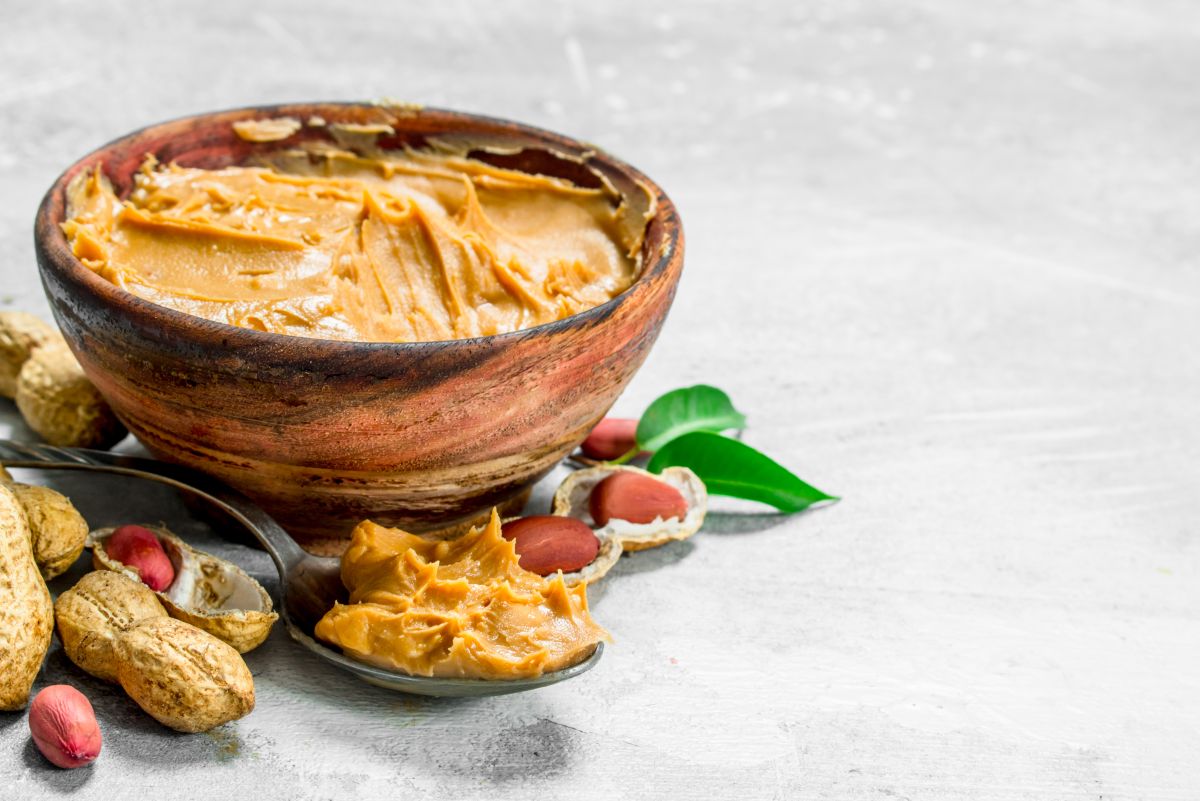I honestly think that life without peanuts and especially peanut butter would be really boring. But when diagnosed with a fatty liver, you need to stop eating foods you previously enjoyed. Are peanuts and peanut butter on that list?
Today, we’re going to learn whether or not you should stop eating peanuts and/or peanut butter after being diagnosed with NAFLD.
The short answer is yes – you can continue eating peanuts and peanut butter if you have a fatty liver. Both are very nutritious, packed with protein, healthy fats, vitamins and minerals, but also calories. This is why you should have them in moderation.
We do have to get a bit more in depth so that you can understand peanuts and peanut butter as part of a fatty liver diet – because the short answer is not the complete one.
Peanuts nutritional info & things to know
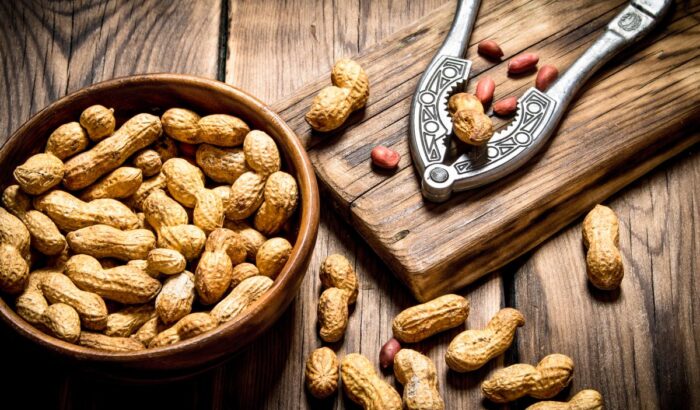
Affordable and readily available, peanuts (especially peanut butter) are definitely a must-have in everyone’s cupboards.
Peanuts make an excellent (and usually convenient) food choice that can be had for breakfast or as a snack.
Despite their name, peanuts do not belong in the nut family. Classified as a legume, people used to believe that the peanut does not possess as much nutritional value as true nuts, such as almonds or cashews.
However, plenty of research has already proven that the peanut can stand its ground against the more expensive nuts when it comes to health benefits.
But how they’re prepared – as well as how much you eat – matter a lot when you also have to deal with a fatty liver. That is mainly because peanuts are packed with calories and fats.
Let’s take a look first at the nutritional values of peanuts. According to the United States Department of Agriculture (USDA), 100 grams of raw peanuts (not roasted, no salt) contain:
- 563 calories
- 25.2g protein
- 48.8g fat
- 8.5g fibers
- 3.95g carbs
- many other minerals and vitamins
Among the minerals, 100 grams of peanuts offer us lots of Magnesium (42% of the daily value), Iron (25%) and Calcium (9), as well as Vitamin B6 (15%), plus smaller amounts of various other minerals and vitamins.
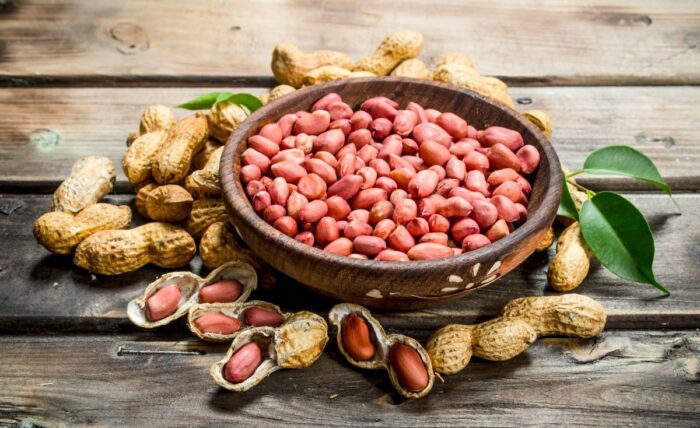
With all those proteins, fats, and fibers densely packed in just a handful of peanuts, it is no wonder you will feel energized and full after eating them.
Best of all, despite being high-calorie, peanuts mostly contain monounsaturated and polyunsaturated fatty acids (the healthy fats). This means that they are not as bad as the saturated fats and can be had with less worries.
In addition, recent research has also identified numerous other compounds that can provide additional benefits beyond basic nutrition, such as antioxidants and essential vitamins.
It doesn’t mean that you can have them in large quantities! 100 grams of peanuts give you 75% of the daily value of fats you should consume, which is quite a lot.
My recommendation? I usually have 40 grams of peanuts (or peanut butter) either as a snack or for breakfast. This gives you plenty of benefits and still allows you to have a varied diet and eat other foods that are good for the liver.
Or read directly about garlic for fatty liver, cucumbers or ginger.
Is peanut butter good for fatty liver?
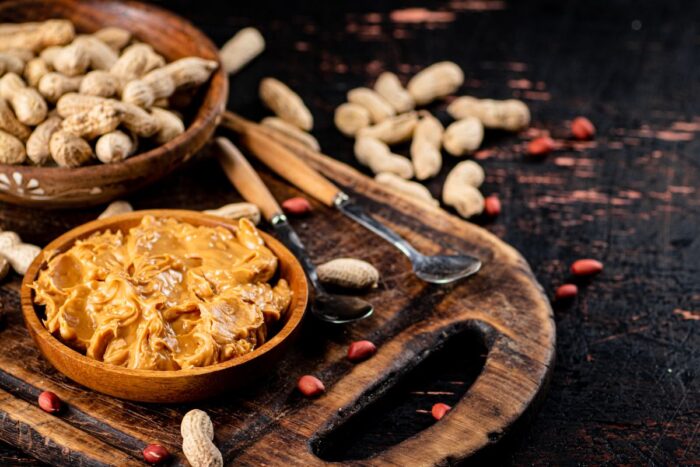
Yes, peanut butter made from 100% peanuts (maybe with some added salt) can be had if you have a fatty liver. It offers the same benefits as eating peanuts does, meaning that you get lots of minerals, vitamins and healthy fats.
However, you need to pay close attention to the ingredients in your peanut butter. Many store-brought options will have added sugar, added oil (low quality oils too), flavor enhancers and other chemicals which would make it unhealthy for the liver.
Therefore, you should only consume peanut butter that is made exclusively from peanuts (some salt is OK too). It doesn’t matter if it’s crunchy or creamy.
If you need some suggestions, the two below are my top recommendations. But you can choose any type of peanut butter that is made exclusively from peanuts.
Or you can try this one, which is not organic, but also really good:
But before you start consuming your favorite jar of peanut butter, do take note! While peanut butter is relatively healthy and nutritious, do keep in mind that it still is high in calories, saturated fats, and sodium (if there’s added salt)!
Love peanut butter, but don’t want the calories?
If you love peanut butter but not the calories, don’t feel too discouraged yet! Peanut butter protein powder is here to save the day.
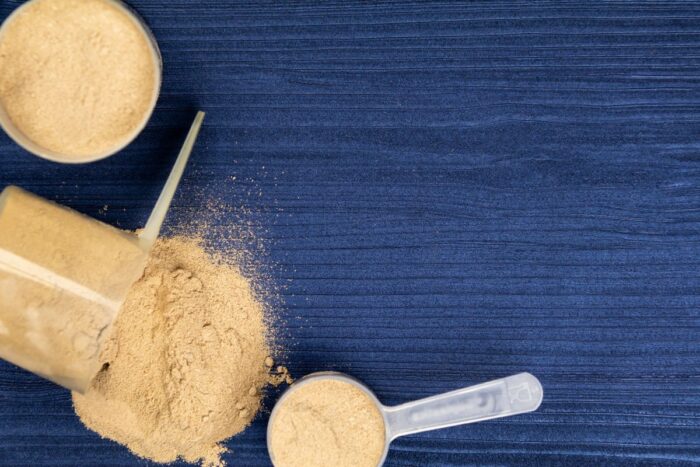
A new spin on the traditional peanut butter, the powder is made by removing most of the natural oils in roasted peanuts before grinding them into a fine powder, resulting in a flavorful yet low-calorie product. It can be used as a powder or rehydrated into a paste.
It can provide you with the needed proteins and fibers but has much fewer calories.
Just simply replace peanut butter with peanut butter protein powder in your recipe – whether it be your drinks or even cookies (speaking of which – check out some fatty liver friendly desserts here).
You can even mix it with water to get a low-calorie spread if you’re craving the smooth creaminess of peanut butter.
A good choice would be this one on Amazon (affiliate link). I personally would still stick to the traditional ones – peanuts and peanut butter, but it’s OK if you choose the powder.
Considering peanut butter powder is a highly processed food product, it will contain fewer nutrients than regular peanuts or peanut butter, such as monounsaturated fats and vitamin E.
So, do take that into consideration when contemplating whether or not to add peanut butter powder into your diet.
If you’re curious about more of the potential nutty flavors, make sure to read whether or not you should have almonds or almond milk if diagnosed with a fatty liver disease.
Conclusion
Unfortunately, people with liver problems, including fatty liver, are often subjected to dietary restrictions and are thus unable to get a lot of nutrients.
A staple in most kitchens, peanuts and peanut butter is a fantastic food option. Not only is it affordable and easy to find, but peanuts and peanut butter are also nutrient-dense sources of protein, fiber, and saturated fats which can be eaten if you have a fatty liver.
That being said, the main problem with peanuts (especially peanut butter) is probably that it is so hard to resist!
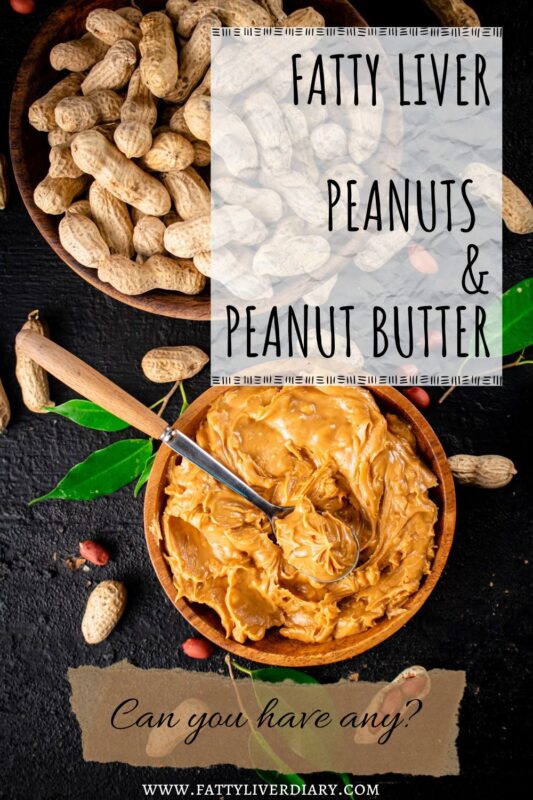
I often struggle trying to stop myself from downing another handful of peanuts or sinking my spoon back into the peanut butter jar.
So, despite its nutritional value, please do not consume one whole jar of peanut butter in one sitting! It is teeming with calories that your body would definitely not appreciate.
As with most food, you must eat it in moderation as part of a balanced diet to give you the best results. I recommend having a maximum of 40 grams per day – and ideally not every day.

I was diagnosed with a fatty liver back in 2014 and managed to reverse it by mid-2015. Since then, I’ve been studying it, continuously updating my knowledge with the latest scientific findings and practical approaches to give others the help they need to reverse their condition.
My approach to managing fatty liver is holistic, balancing scientifically-backed information with real-life, practical advice based on personal, direct experience.
I am also the admin of the Fatty Liver Support Group on Facebook and the Fatty Liver Subreddit.

